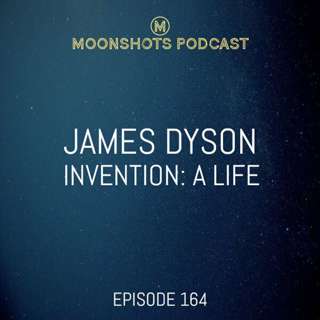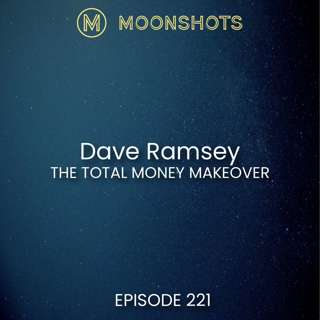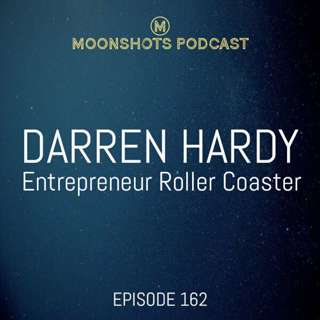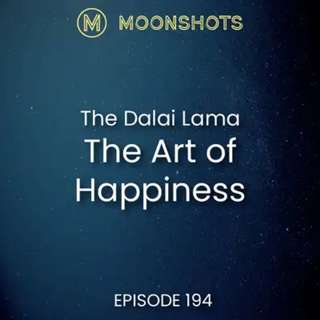
How to Invent and Successfully Take Risks Like Expert James Dyson
James Dyson is a renowned British inventor, entrepreneur, and founder of the Dyson company. He is best known for inventing the bagless vacuum cleaner and has since expanded his company to manufacture other household appliances, including fans, heaters, and hair dryers. Some of the main lessons that can be learned from James Dyson are:Failure can lead to success: Dyson created over 5,000 prototypes before developing the first bagless vacuum cleaner. He believed in his idea and persisted even in the face of failure. This persistence paid off, as his vacuum cleaner design became a huge commercial success.Innovation requires risk-taking: Dyson was willing to take risks and challenge conventional thinking. He was unsatisfied with the existing vacuum cleaner designs and created something new. This willingness to take risks and think outside the box has allowed Dyson to innovate and create new products.Continuous improvement is essential: Dyson believes in continuously improving its products. He invests heavily in research and development to ensure his products constantly evolve and improve. This dedication to continuous improvement has helped Dyson stay at the forefront of the market.Focus on design: Dyson places a strong emphasis on design. He believes that products should not only be functional but also aesthetically pleasing. This design focus has helped Dyson create products that work well and look good.Believe in yourself: Dyson faced a lot of rejection and criticism before he became successful. However, he remained confident in his abilities and his ideas. This self-belief allowed him to keep pushing forward and eventually achieve success.James Dyson's success can be attributed to his persistence, risk-taking, continuous improvement, design focus, and self-belief.RUNSHEETINTROJames Dyson and his family reflect on how the journey to innovation takes timeSee things through (1m56)INSPIRATION AND PERSEVERANCEJames Dyson and the creation of the BallBarrow leading him to the vacuumProgress comes from small improvements (1m06)COURAGE IN THE DYSON BUSINESSJames Dyson speaks about the Dyson business’ approach to engineeringProblem-solving (53s)James Dyson and the importance of prototypesEmbrace and track failures (3m39)OUTROJames Dyson and his family discuss the bravery that comes with building the businessTrust your instincts (1m51) Thanks to our monthly supporters Mike Edwin Deitch Jamie Dorward Emily Rose Banks Malcolm Magee Natalie Ryan N. Marco-Ken Möller 孤鸿 月影 Fabian Jasper Verkaart Andy Pilara ola Austin Hammatt Zachary Phillips Mike Leigh Cooper Gayla Schiff Laura KE Roar Nikolay Ytre-Eide Stef Roger von Holdt venkata reddy Ingram Casey Ola rahul grover Ravi Govender Craig Lindsay Steve Woollard Deborah Spahr Samoela Jo Hatchard Kalman Cseh Berg De Bleecker Paul Acquaah MrBonjour Konnor Ah kuoi Marjan Modara Dietmar Baur Bob Nolley ★ Support this podcast on Patreon ★
26 Apr 202355min

Secrets of Product Discovery from Successful Entrepreneurs
Product discovery is the process of discovering, defining, and validating a new product idea or an enhancement to an existing product. It's a critical phase for entrepreneurs because it helps them identify and understand the problems and needs of their target customers, enabling them to build products that solve those problems effectively.To listen to the entire show, please become a member here:https://www.patreon.com/MoonshotsHere are some reasons why product discovery is essential for entrepreneurs:Identifying customer needs: The product discovery process involves conducting market research and gathering feedback from potential customers. This helps entrepreneurs understand their customers' needs, pain points, and preferences, which are crucial in developing a product that meets their expectations.Reducing risks: By conducting product discovery, entrepreneurs can validate their product ideas before investing significant time and resources into building the product. This helps reduce the risk of making a product that nobody wants, which could result in wasted resources and failure.Improving product-market fit: Product discovery helps entrepreneurs ensure that their product meets the target market's needs. This increases the likelihood of product-market fit, where the product satisfies the market's needs and generates demand.Increasing customer satisfaction: A well-designed product that meets the target customers' needs is likely to result in higher customer satisfaction. This can lead to positive reviews, repeat business, and word-of-mouth marketing, which are essential for the success of any startup.In conclusion, product discovery is a critical process for entrepreneurs that enables them to develop products that meet the needs of their target customers, reduce risks, achieve product-market fit, and increase customer satisfaction.RUN SHEETReed Hastings says that in business, we should all work at delivering the most joy possible to our customers - then they’ll stay with usAlways Deliver Joy_PN (42s)Bob Iger reflects on Steve Jobs, and how even the smallest detail - if well done - contributes a tremendous amount of value to the wholeStrive For Perfection_PN (1m13)Tony Fadell has a major insight in how not to take shortcuts, even if it goes against your investorsLook closer_PN (4m30)Marty Cagan talks about four keys to great product strategy: focus, insights, empowerment, servant leadershipSecrets to great product strategy_PN (4m08)Bill Carr, author of Working Backwards, talks about building products with Jeff Bezos, as well as the PRFAQWorking Backwards Process_PN (3m14)Tony Fadell talks about making a decision, based on research and experience, and when to start a company or build a productGoing from Idea to Product (2m02) Thanks to our monthly supporters Mike Edwin Deitch Jamie Dorward Emily Rose Banks Malcolm Magee Natalie Ryan N. Marco-Ken Möller 孤鸿 月影 Fabian Jasper Verkaart Andy Pilara ola Austin Hammatt Zachary Phillips Mike Leigh Cooper Gayla Schiff Laura KE Roar Nikolay Ytre-Eide Stef Roger von Holdt venkata reddy Ingram Casey Ola rahul grover Ravi Govender Craig Lindsay Steve Woollard Deborah Spahr Samoela Jo Hatchard Kalman Cseh Berg De Bleecker Paul Acquaah MrBonjour Konnor Ah kuoi Marjan Modara Dietmar Baur Bob Nolley ★ Support this podcast on Patreon ★
25 Apr 202315min

Straightforward Advice you can use Today to Master Your Money
Dave Ramsey is a well-known author, radio host, and financial expert famous for his practical advice on personal finance, wealth management, and debt elimination. Become a member here:https://www.patreon.com/MoonshotsHere are some of the themes and topics that Dave Ramsey commonly writes about:Personal finance and budgeting: Dave Ramsey is known for his advice on managing personal finances, creating a budget, and saving money. He emphasizes the importance of living below your means, building an emergency fund, and avoiding debt.Debt elimination: Dave Ramsey advocates getting out of debt and staying debt-free. He provides a step-by-step plan for paying off debt, known as the "debt snowball method," which involves paying off the smallest debts first and then moving on to larger ones.Investing and retirement planning: Dave Ramsey advises investing, retirement planning, and building wealth over the long term. He recommends investing in low-cost index funds, diversifying your investments, and taking a long-term approach.Business and entrepreneurship: Dave Ramsey also writes about starting and running a successful business. He provides advice on business planning, marketing, and financial management.Leadership and personal growth: Besides personal finance and business, Dave Ramsey also writes about leadership and personal development. He encourages readers to develop leadership skills, pursue their passions, and live purposeful lives.Dave Ramsey's writings focus on practical, actionable advice for improving your financial situation, building wealth, and achieving your goals.Buy Total Money Makeover from Amazon https://geni.us/DaveRamseyTotalBuy Summary of Total Money Makeover from Blinkist https://blinkist.o6eiov.net/y2qRvVINTRODave Ramsey introduces the 7 Baby Steps within the Total Money Makeover, by focusing on steps 1 and 2Save and Snowball (3m27)MINDSETSwedish Investor helps us accept that we need to be realistic with our financesNo More Denial (2m19)WHERE TO STARTDave and Jess from the Ramsey Show talk through the need for patience and resilienceHow to stay motivated (4m25)Dave breaks down a caller’s situation, and how money is a toolGet rid of the debt (3m41)OUTRODave closes the show with a call to action: take ownership of your money decisions, and the value of KISSThe secrets of the rich (3m40)Buy Total Money Makeover from Amazon https://geni.us/DaveRamseyTotalBuy Summary of Total Money Makeover from Blinkist https://blinkist.o6eiov.net/y2qRvV Thanks to our monthly supporters Mike Edwin Deitch Jamie Dorward Emily Rose Banks Malcolm Magee Natalie Ryan N. Marco-Ken Möller 孤鸿 月影 Fabian Jasper Verkaart Andy Pilara ola Austin Hammatt Zachary Phillips Mike Leigh Cooper Gayla Schiff Laura KE Roar Nikolay Ytre-Eide Stef Roger von Holdt venkata reddy Ingram Casey Ola rahul grover Ravi Govender Craig Lindsay Steve Woollard Deborah Spahr Samoela Jo Hatchard Kalman Cseh Berg De Bleecker Paul Acquaah MrBonjour Konnor Ah kuoi Marjan Modara Dietmar Baur Bob Nolley ★ Support this podcast on Patreon ★
21 Apr 20231h 1min

Why Most Business Fail and 5 Ideas to Prevent it from Happening to You
The E-Myth Revisited by Michael Gerber is a popular business book focusing on the entrepreneurial mindset and building successful businesses. The book is important because it challenges many common assumptions about entrepreneurship and provides a fresh perspective on what it takes to succeed in business.Become a member here: https://www.patreon.com/MoonshotsOne of the key ideas in the book is that many small business owners fail because they are skilled technicians who are not prepared to run a business. Gerber argues that to succeed as an entrepreneur, one must be able to work in the company, not just in the industry. This means developing systems and processes that allow the business to run smoothly, even when the owner is absent.Buy the book from Amazon: https://geni.us/TheEMythAnother essential concept in the book is creating a franchise prototype. Gerber argues that successful businesses are built around systems and processes that can be replicated repeatedly. Starting a franchise prototype allows a small business to grow and expand while maintaining consistency and quality.Buy the summary from Blinkist https://blinkist.o6eiov.net/NKVdQbOverall, The E-Myth Revisited is essential because it challenges conventional wisdom about entrepreneurship and provides a practical roadmap for building successful businesses. The book has been widely read and influential and has helped many entrepreneurs build successful companies. Thanks to our monthly supporters Mike Edwin Deitch Jamie Dorward Emily Rose Banks Malcolm Magee Natalie Ryan N. Marco-Ken Möller 孤鸿 月影 Fabian Jasper Verkaart Andy Pilara ola Austin Hammatt Zachary Phillips Mike Leigh Cooper Gayla Schiff Laura KE Roar Nikolay Ytre-Eide Stef Roger von Holdt venkata reddy Ingram Casey Ola rahul grover Ravi Govender Craig Lindsay Steve Woollard Deborah Spahr Samoela Jo Hatchard Kalman Cseh Berg De Bleecker Paul Acquaah MrBonjour Konnor Ah kuoi Marjan Modara Dietmar Baur Bob Nolley ★ Support this podcast on Patreon ★
18 Apr 202357min

5 Ideas to Overcome Fear of the Unknown and Start Your Business
"The Entrepreneur Roller Coaster" by Darren Hardy is an essential read for entrepreneurs because it provides a realistic and practical guide to the ups and downs of starting and running a business. The book focuses on the emotional and psychological challenges that entrepreneurs face and offers actionable advice on navigating these challenges and building a successful business.Become a member here:https://www.patreon.com/MoonshotsSome of the critical insights that the book offers include:Understanding entrepreneurship's emotional highs and lows: The book emphasizes the importance of recognizing that entrepreneurship is a roller coaster ride involving emotional highs and lows. By acknowledging and preparing for these emotional ups and downs, entrepreneurs can better navigate the challenges of starting and running a business.Embracing failure and learning from mistakes: The book encourages entrepreneurs to view failure as a necessary part of the entrepreneurial journey and to learn from their mistakes. By embracing failure and using it as a learning opportunity, entrepreneurs can become more resilient and better equipped to handle the challenges of entrepreneurship.Building a robust support system: The book emphasizes the importance of building a solid support system of mentors, coaches, and peers who can provide guidance and support during the entrepreneurial journey.Developing a growth mindset: The book encourages entrepreneurs to build a growth mindset and focus on continuous learning and improvement. By adopting a growth mindset, entrepreneurs can overcome obstacles and achieve success.Overall, "The Entrepreneur Roller Coaster" is essential for entrepreneurs because it provides a practical and actionable guide to entrepreneurship's emotional and psychological challenges. By following the advice in the book, entrepreneurs can build the resilience, mindset, and support system they need to succeed. Thanks to our monthly supporters Mike Edwin Deitch Jamie Dorward Emily Rose Banks Malcolm Magee Natalie Ryan N. Marco-Ken Möller 孤鸿 月影 Fabian Jasper Verkaart Andy Pilara ola Austin Hammatt Zachary Phillips Mike Leigh Cooper Gayla Schiff Laura KE Roar Nikolay Ytre-Eide Stef Roger von Holdt venkata reddy Ingram Casey Ola rahul grover Ravi Govender Craig Lindsay Steve Woollard Deborah Spahr Samoela Jo Hatchard Kalman Cseh Berg De Bleecker Paul Acquaah MrBonjour Konnor Ah kuoi Marjan Modara Dietmar Baur Bob Nolley ★ Support this podcast on Patreon ★
13 Apr 202357min

Timeless Lessons on Wealth, Greed, and Happiness with Morgan Housel
The Psychology of Money by Morgan Housel is an essential book for several reasons. First, it highlights the importance of understanding our own biases and behaviours when it comes to money. The book provides numerous examples of how our psychology can impact our financial decisions and offers insights into recognizing and overcoming these biases.It challenges conventional wisdom about investing and wealth accumulation. The book argues that simple and consistent strategies, such as saving regularly and avoiding high fees, are often more effective than trying to time the market or pick individual stocks.It emphasizes the role of patience and long-term thinking in building wealth. The book stresses that successful investing is a marathon, not a sprint, and that time is the most critical factor in achieving financial success.It offers practical advice on how to manage money and invest wisely. The book has real-world examples and anecdotes that make complex financial concepts accessible to readers.Overall, The Psychology of Money is essential because it helps readers understand the psychological and emotional factors that can influence financial decisions and offers practical guidance on making sound financial choices.INTROMorgan Housel kicks us off with what makes a good investorBehaviour vs Intelligence (3m40)RETHINKING MONEYSwedish Investor, with the help of Warren Buffett, breaks down why we need to shift our mindset around moneyNever enough (3m01)ESSENTIAL RULESMorgan breaks down his rules for his financeHave guidelines, not rules (2m17)Productivity Game brings to life an idea about money that many of us fail to grasp: stop putting off your management of wealthCompounding starts now (3m47)OUTROMorgan closes the show with an insight into how focus can bring independence.What is your goal (3m53) Thanks to our monthly supporters Mike Edwin Deitch Jamie Dorward Emily Rose Banks Malcolm Magee Natalie Ryan N. Marco-Ken Möller 孤鸿 月影 Fabian Jasper Verkaart Andy Pilara ola Austin Hammatt Zachary Phillips Mike Leigh Cooper Gayla Schiff Laura KE Roar Nikolay Ytre-Eide Stef Roger von Holdt venkata reddy Ingram Casey Ola rahul grover Ravi Govender Craig Lindsay Steve Woollard Deborah Spahr Samoela Jo Hatchard Kalman Cseh Berg De Bleecker Paul Acquaah MrBonjour Konnor Ah kuoi Marjan Modara Dietmar Baur Bob Nolley ★ Support this podcast on Patreon ★
11 Apr 20231h

Discover How Modesty Can Turn you into The Millionaire Next Door
"The Millionaire Next Door" is a book by Thomas J. Stanley and William D. Danko, published in 1996. The book is based on a study of millionaires in the United States, which aimed to understand the behaviours and habits that lead to wealth accumulation.Become a member here:https://www.patreon.com/MoonshotsThe authors found that many of the stereotypes of millionaires were incorrect. They discovered that most millionaires in the US are self-made and tend to be frugal and live modest lifestyles. They also found that many millionaires drive ordinary cars in middle-class neighbourhoods.The book highlights several common key characteristics among millionaires, including a strong work ethic, the ability to live below their means, a focus on long-term financial planning, and a willingness to take calculated risks.One of the key takeaways from the book is that anyone can become a millionaire by adopting the right behaviours and habits. The authors argue that the path to wealth is not about inheriting money or having a high-paying job but rather about making wise financial decisions and living below one's means."The Millionaire Next Door" is important because it challenges many of the myths and stereotypes about wealth in the US. It provides a roadmap for ordinary people to achieve financial independence and build wealth over time. The book has significantly impacted the personal finance industry and inspired many people to adopt a more disciplined approach to money management. Thanks to our monthly supporters Mike Edwin Deitch Jamie Dorward Emily Rose Banks Malcolm Magee Natalie Ryan N. Marco-Ken Möller 孤鸿 月影 Fabian Jasper Verkaart Andy Pilara ola Austin Hammatt Zachary Phillips Mike Leigh Cooper Gayla Schiff Laura KE Roar Nikolay Ytre-Eide Stef Roger von Holdt venkata reddy Ingram Casey Ola rahul grover Ravi Govender Craig Lindsay Steve Woollard Deborah Spahr Samoela Jo Hatchard Kalman Cseh Berg De Bleecker Paul Acquaah MrBonjour Konnor Ah kuoi Marjan Modara Dietmar Baur Bob Nolley ★ Support this podcast on Patreon ★
5 Apr 20231h 1min

Think Differently About Money and Generate More Wealth (Rich Dad, Poor Dad)
"Rich Dad Poor Dad" is a personal finance book by Robert Kiyosaki and Sharon Lechter. The book was first published in 1997 and has since become a bestseller, selling over 40 million copies worldwide.Become a member here:https://www.patreon.com/MoonshotsThe book is written in the form of a memoir, with Kiyosaki sharing his own experiences of growing up with two fathers: his biological father (the "poor dad"), who was highly educated but struggled financially, and his best friend's father (the "rich dad"), who was not highly educated but was very wealthy.The book emphasizes the importance of financial literacy and challenges the traditional approach to education and career that emphasizes getting a good job and saving for retirement. Instead, Kiyosaki encourages readers to think like entrepreneurs and investors, to seek out passive income streams, and to use assets to generate wealth.One of the book's key takeaways is that wealth is not about how much money you make but how much money you keep and how effectively you use it to generate more wealth. Kiyosaki emphasizes the importance of financial education and teaches readers how to think critically about money and investing."Rich Dad Poor Dad" has been praised for its accessible writing style and ability to inspire readers to think differently about money and wealth. It has been credited with helping many people to break free from the cycle of living paycheck to paycheck and building wealth and financial security for themselves and their families. Thanks to our monthly supporters Mike Edwin Deitch Jamie Dorward Emily Rose Banks Malcolm Magee Natalie Ryan N. Marco-Ken Möller 孤鸿 月影 Fabian Jasper Verkaart Andy Pilara ola Austin Hammatt Zachary Phillips Mike Leigh Cooper Gayla Schiff Laura KE Roar Nikolay Ytre-Eide Stef Roger von Holdt venkata reddy Ingram Casey Ola rahul grover Ravi Govender Craig Lindsay Steve Woollard Deborah Spahr Samoela Jo Hatchard Kalman Cseh Berg De Bleecker Paul Acquaah MrBonjour Konnor Ah kuoi Marjan Modara Dietmar Baur Bob Nolley ★ Support this podcast on Patreon ★
2 Apr 20231h 3min






















